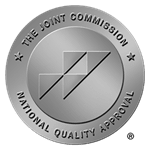Contemplation: The Next Step
An Elusive State
Hopefully, after reading our blog on meditation, a number of you went out and tried some sitting on your own. Like we’ve mentioned, meditation is the one skill that we hope to pass on to everyone we treat. However, if you did spend some time meditating, you no doubt know the following statement is true: The contemplative state of mind is elusive. The mind does what it does without ceasing. It is a seemingly endless narrative of thoughts and ideas that materialize into actions and effects. The contemplative state of mind is a mind that is content with just viewing or watching the cerebrations (workings) of the mind itself. We reach this state of contemplation when all other attempts at grasping, and understanding, and making sense of, and ponderings, and musings, and unravelings, and thinking are exhausted. When we arrive at the conclusion that thinking and not thinking will resolve anything. When action and non-action bring about no change. This “stumped” feeling where all you have left is to just sit and watch and wait, is contemplation.
Contemplation From the Tower
Again, it is helpful to look at the etymologies of words for a deeper understanding of them. Kuan is the Chinese word for contemplation. It also means “view.” The old Chinese character for this idea is a tower. From the tower, we command a view of all that surrounds us. By sitting and watching from a height, we gain direct understanding of the innate order and laws of nature. Allying with this force is a skill we hope to cultivate in the people we have committed to help.
Self-Examination Vs. Idle Brooding
How is contemplation beneficial to those of us in some type of recovery? It is important to be aware of the effects we create in the world. The right sort of self-examination consists not in idle brooding over oneself but in examining the effects one produces. In other words, what is our offering to the world? What do our actions and non-actions create in the world around us? What do we produce? Only by watching ourselves closely can we discover the end results of our actions and thoughts. And adjust them accordingly.










